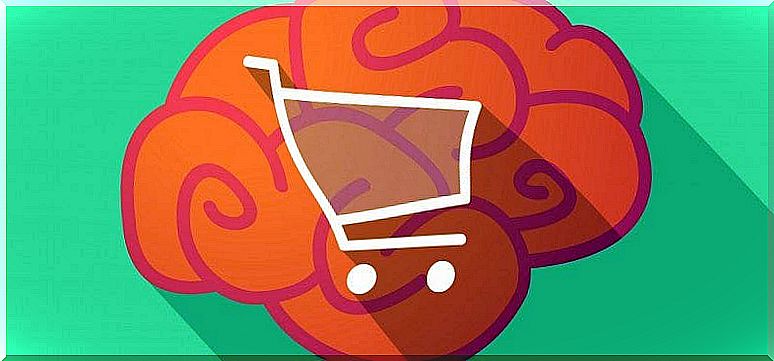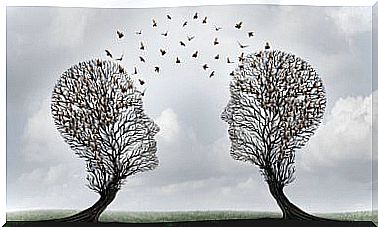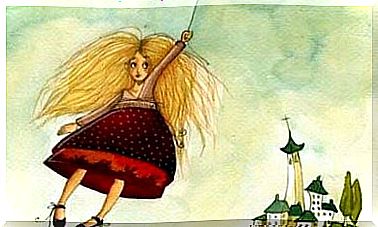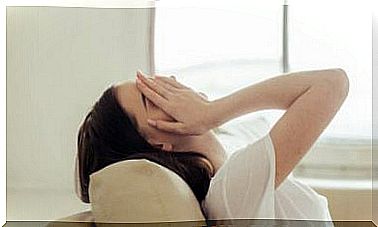What Happens When Shopping Masks Sadness?

Shopping has become a fun or entertainment plan for many people. It has not always been this way. Before, shopping was a matter of supply, which was part of the necessary and routine. Today, instead, shopping is for many a way to relax, dissipate and even part of a restorative or “therapy.”
A reality like this is only possible within the framework of a consumer society. It was not the tastes and preferences of the people that gave rise to that pleasure in shopping. Rather, the opposite happened: the new forms of the economy and the market gave rise to new tastes and preferences in the way of enjoying free time. Advertising, of course, also has a lot to do with this habit, making the accessory a necessity.
Before, supermarkets were designed so that customers could easily find what they were looking for, period. Now they have become monuments to architecture, with a whole host of comforts and possibilities for entertainment. They basically function as entertainment centers and have become a social reference point.
Shopping: positive or negative?
It is a fact that we are in a consumer society and that we all participate in some way to preserve this dynamic. It is also a fact that no matter how austere we are, shopping brings us satisfaction. In addition to the need we fill by purchasing an item, shopping also provides us with a sense of power and abundance that is difficult to achieve with other activities.

Studies have shown that the brain benefits from shopping. In an investigation of the University of Brunel this phenomenon was observed. Seeing something you like, wanting to buy it, and buying it activates some areas of the brain that release dopamine. Your mood improves and you feel happier. This has been verified.
On the other hand, the brain also reacts in the same way to other types of stimuli. Your mood also improves when you play sports or do a rewarding activity like dancing or knitting. The same happens if they give you a compliment that you evaluate as sincere or if you immerse yourself deeply in a reading. However, the market has been in charge of stereotyping satisfaction and directing it towards a shopping center (this is what the market is interested in).
There is nothing wrong and much positive when you go shopping in a conscious and responsible way. Difficulties arise if the continuous visit to the shopping centers tries to be an outlet for a feeling of discomfort that you know how to manage in another way. In those cases, purchases do not help improve your mood, but help to cover up a problem or even create another.
Think that perhaps the discomfort will pass while you are window shopping, going in and out of the dressing room or imagining yourself opening it while you pay. But … how do you feel once these brief high points have passed, better or worse than before?
Go shopping to manage discomfort
It has become common to hear many people saying that they are going shopping because they are depressed and want to improve their mood. Or that shopping is her therapy to “forget” about problems. Shopping malls have become a place to mourn and appease oppressed hearts. Buying products helps us forget that we are limited, finite and problematic.

Under these conditions, it is not uncommon for someone to focus their free time schedule on visits to shopping malls or other businesses. Nor is it strange that they experience deep frustration when they cannot do it, or that they work to have the income that allows them to maintain a very high “lifestyle”.
The perfect complement to this scheme are credit cards. Until a few decades ago they were a product focused on business people or with high income. Now they offer them to you anywhere and make their acquisition as easy as possible. The credit card eliminates the barriers when it comes to shopping because while shopping you do not see what you are spending. You go out of debt and happy to get on with your life.
Without realizing it, your life is getting poorer in many ways. A good part of your income ends up being diverted for the payment of the credits acquired. Also, your world is becoming one-dimensional.
You stop finding satisfaction in free activities that don’t involve a transaction. Without knowing how, you’ve handed control over to the marketers. In the end, you are the one who pays: what you bought, what you stopped living and the consequences of the conflict that you did not solve and that you tried to put under the rug so as not to see them, based on spending money and resources on items that you do not need. .









